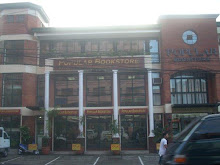Thursday, September 2, 2010
The Philippine Informal Sector: Policies, Practices and Perspectives by: Isagani Antonio F. Yuzon
Foreword.In the International Labor Organization's (ILO) Kenya Mission Report, the concept of the informal sector was introduced as that segment whose ?way of doing things was characterized by (a) ease of entry; (b) reliance on indigenous resources; (c)family ownership;(d) small scale operations;(e) labor intensive and adaptive technology; (f) skills acquired outside of the formal sector; (g) unregulated and competitive markets?. Over time, the concept's definition has evolved.it cannot be denied that the informal sector performs a significant yet contentious role in society. While it has provided jobs and reduced unemployment and underemployment, most informal jobs are low-paying and offer almost no job security at all. Encouraging entrepreneurship to help alleviate poverty, the informal sector by its very nature, has exhibited low compliance with labor standards and tax regulations. Increasing in size and role especially in economic crises and periods of transition, this informal sector is estimated to be about 4%-6% in developed economies to almost 50%-70% in underdeveloped and developing countries.

